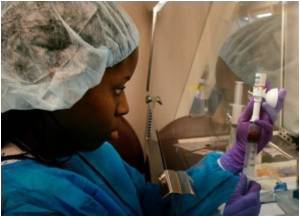Research has indicated that when the proteins RalA and RalB are present, cells in dishes copy toward aggressive forms of cancer.

"But here's the interesting part," says Dan Theodorescu, director of the University of Colorado Cancer Center and the paper's senior author – "it wasn't the presence of these proteins per se that predicted aggressive cancer characteristics, it was the signature of other genes changed by RAL activity in the cells that predicted poor outcomes."
RalA and RalB activity leads to a cascade of genetic (and gene expression) changes. Theodorescu and colleagues discovered the signature of these changes, and this pattern of turning up and turning down genes is what predicts aggressive cancers.
"It might not be presence of these RAL proteins themselves that drives cancer as much as their ability to drive genetic changes that in turn drive cancer," Theodorescu says.
In the three types of human tumors explored – bladder, prostate, and the skin cancer known as squamous cell carcinoma – panels of genes affected by RalA and RalB in turn predicted stage and survival.
"The RAL family of GTPases are cousins of the now well-known RAS family of oncogenes," Theodorescu explains. "These RAS family GTPases, are found in leukemias, lung cancer, colon cancer and others, and have been a focus of efforts to develop targeted cancer therapies. We imagine the related RAL family may provide a similar target."
Advertisement
Advertisement















